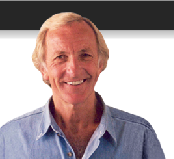In 2011, in Sydney, I spent several hours with a conservative Member of Australia's Federal Parliament, Malcolm Turnbull. We discussed the threats to Assange and their wider implications for freedom of speech and justice, and why Australia was obliged to stand by him. Turnbull then had a reputation as a free speech advocate. He is now the Prime Minister of Australia.
I gave him Gareth Peirce's letter about the threat to Assange's rights and life. He said the situation was clearly appalling and promised to take it up with the Gillard government. Only his silence followed.
For almost seven years, this epic miscarriage of justice has been drowned in a vituperative campaign against the WikiLeaks founder. There are few precedents. Deeply personal, petty, vicious and inhuman attacks have been aimed at a man not charged with any crime yet subjected to treatment not even meted out to a defendant facing extradition on a charge of murdering his wife. That the US threat to Assange was a threat to all journalists, and to the principle of free speech, was lost in the sordid and the ambitious. I would call it anti-journalism.
Books were published, movie deals struck and media careers launched or kick-started on the back of WikiLeaks and an assumption that attacking Assange was fair game and he was too poor to sue. People have made money, often big money, while WikiLeaks has struggled to survive.
The previous editor of the Guardian, Alan Rusbridger, called the WikiLeaks disclosures, which his newspaper published, "one of the greatest journalistic scoops of the last 30 years." Yet no attempt was made to protect the Guardian's provider and source. Instead, the "scoop" became part of a marketing plan to raise the newspaper's cover price.
With not a penny going to Assange or to WikiLeaks, a hyped Guardian book led to a lucrative Hollywood movie. The book's authors, Luke Harding and David Leigh, gratuitously described Assange as a "damaged personality" and "callous." They also revealed the secret password he had given the paper in confidence, which was designed to protect a digital file containing the US embassy cables. With Assange now trapped in the Ecuadorean embassy, Harding, standing among the police outside, gloated on his blog that "Scotland Yard may get the last laugh."
Journalism students might well study this period to understand the most ubiquitous source of "fake news" -- as from within a media self-ordained with a false respectability and as an extension of the authority and power it courts and protects.
The presumption of innocence was not a consideration in Kirsty Wark's memorable live-on-air interrogation in 2010. "Why don't you just apologize to the women?" she demanded of Assange, followed by: "Do we have your word of honor that you won't abscond?"
On the BBC's Today program, John Humphrys bellowed: "Are you a sexual predator?" Assange replied that the suggestion was ridiculous, to which Humphrys demanded to know how many women he had slept with.
"Would even Fox News have descended to that level?" wondered the American historian William Blum. "I wish Assange had been raised in the streets of Brooklyn, as I was. He then would have known precisely how to reply to such a question: 'You mean including your mother?'"
Last week, on BBC World News, on the day Sweden announced it was dropping the case, I was interviewed by Greta Guru-Murthy, who seemed to have little knowledge of the Assange case. She persisted in referring to the "charges" against him. She accused him of putting Trump in the White House; and she drew my attention to the "fact" that "leaders around the world" had condemned him. Among these "leaders" she included Trump's CIA director. I asked her, "Are you a journalist?"
Next Page 1 | 2 | 3 | 4 | 5 | 6
(Note: You can view every article as one long page if you sign up as an Advocate Member, or higher).





